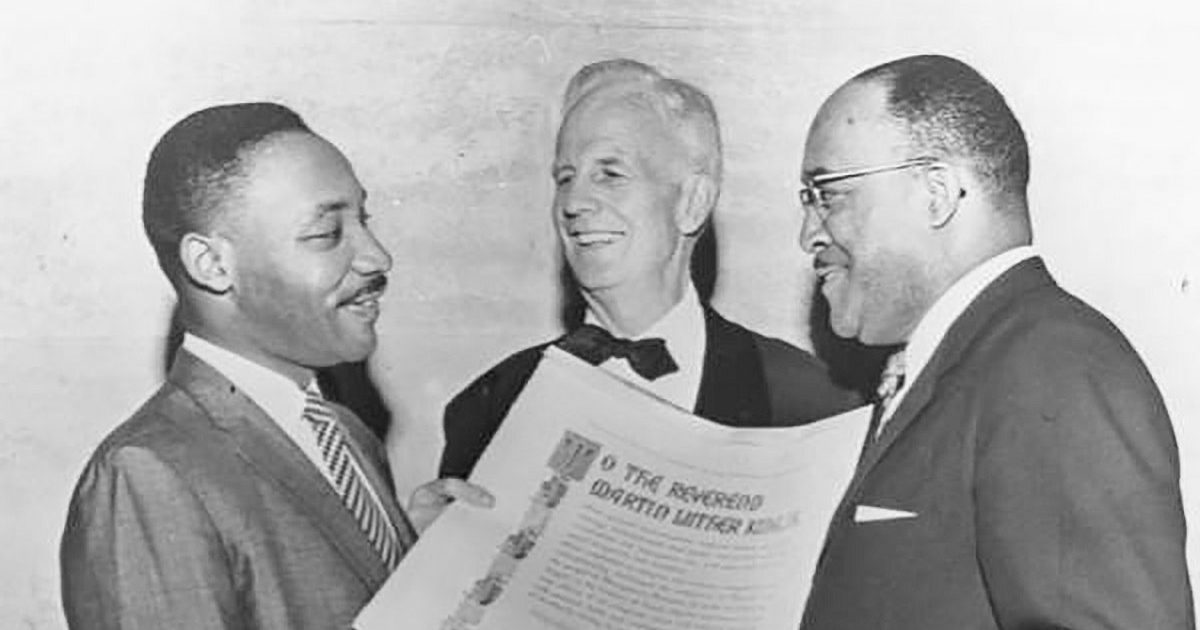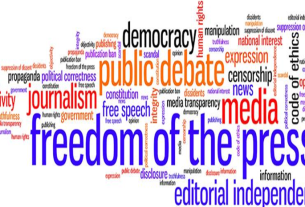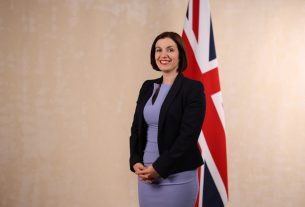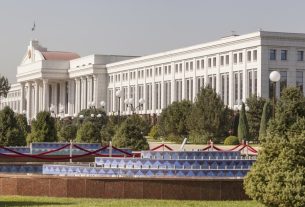Martin Luther King Jr. is one of the most revered figures in American history. A clergyperson, theologian, activist, author, professor, and more, his likeness is iconic across the globe. He remains the only American citizen with a federal holiday in his honor, which was first observed in 1986.
While nearly everyone is familiar with some aspect of King’s life and work, many are not aware of his strong ties to the Philly region.
From the time he was a teenager to his death, the clergy, academics, civil rights leaders, and institutions he came into contact with in Philadelphia left an indelible impact on the worldview of the Nobel Peace Prize winner.
Diane D. Turner, author and director of Temple University’s Charles L. Blockson Afro-American Collection, explained to the Philadelphia Citizen why this city was one of King’s homes away from home.
“Philadelphia has always been one of the most significant cities for African Americans, starting with having the highest number of free Blacks,” Turner told the Citizen last year. “Pennsylvania also has the two oldest historically Black colleges — Cheyney and Lincoln universities.”
To honor the freedom fighter on his birthday, here are five connections Martin Luther King has with Philadelphia.
King attended graduate school just outside Philly
After graduating from Georgia’s Morehouse College at 18 years old in 1948, King took his studies to none other than Delco. He enrolled in Crozer Theological Seminary in Upland, Pa., which was one of the most progressive Baptist seminaries of the day. (It has since merged with a divinity school in upstate New York.)
While a student at Crozer, King was an intern at the historic Calvary Baptist Church in Chester under the leadership of J. Pius Barbour, who was one of his early mentors and the first African American to graduate from Crozer. At Calvary, King taught Sunday School and was a youth minister. Following three years of study, he graduated in 1951.
King was introduced to Gandhi’s teachings in Philly
Pacifist leader Mahatma Gandhi’s teachings were one of the greatest influences on King’s religious identity and social philosophy — and he was first introduced to them in Philadelphia.
In 1949, while a student at Crozier, King visited a church in Philadelphia one Sunday to hear a lecture by then-Howard University President Mordicai Johnson. Centered on the work of Gandhi, the speech Johnson delivered was “so profound and electrifying,” King later said, that it changed his thinking, he later said. The young reverend-in-training went on to purchase books about Gandhi, which would help shape his ministry.
King received one of his first big humanitarian awards in Philly
Nearly a decade later, King had begun to make waves in the burgeoning civil rights movement, but he wasn’t yet internationally renowned. After leading the Montgomery bus boycott sparked by Rosa Parks, he was honored in Philly with one of his first national awards.
The Philadelphia Fellowship Commission at the time was the country’s largest private human rights organization, and in 1957 it bestowed on King the National Fellowship Award in a ceremony at the Benjamin Franklin Hotel (now apartments at 9th and Chestnut).
An indication that King’s name had yet to become a household word: A Philadelphia Evening Bulletin photo of the presentation ceremony was captioned only “Alabama minister cited.”
Philly had the largest contingent at the March on Washington
King spoke his best known words on the steps of the Lincoln Memorial on Aug. 28, 1963. The occasion was the March on Washington for Jobs and Freedom, and the oration — forever known as the “I Have a Dream” speech — was witnessed by more than 250,000 people.
More than 42,000 of those march participants were from Philly. Samuel Evans, an influential African American entrepreneur, used his connections to organize 500 buses, and reserved a train for Philadelphians who wanted to be present for the momentous occasion.
King spoke at a rally to help desegregate a Philly school
Some of King’s strongest allies in the freedom struggles were Black clergy and activists in Philadelphia, including Cecil B. Moore.
At the urging of fellow civil rights activist Cecil B. Moore, King came to Philly in 1965 to join the fight to desegregate Girard College, a boarding school for economically disadvantaged children. Its founder, Stephen Girard, had detailed in his will that it should only ever accept white, male orphans.
“I must face the fact that it is a sad experience at this stage of the 20th century, to have to stand in the city that has been known as the ‘Cradle of Liberty,’ that has in its midst and its presence, a kind of Berlin wall to keep the colored children of God out,” King said to the cheering crowd in North Philly.
“This school is symbolic of a tragic evil in our nation,” King avowed. “It is symbolic of a cancer in the body politic which must be removed before our democratic health can be realized.”
A month after King’s assassination in 1968, the Supreme Court struck down the school’s discriminatory whites-only rule.



